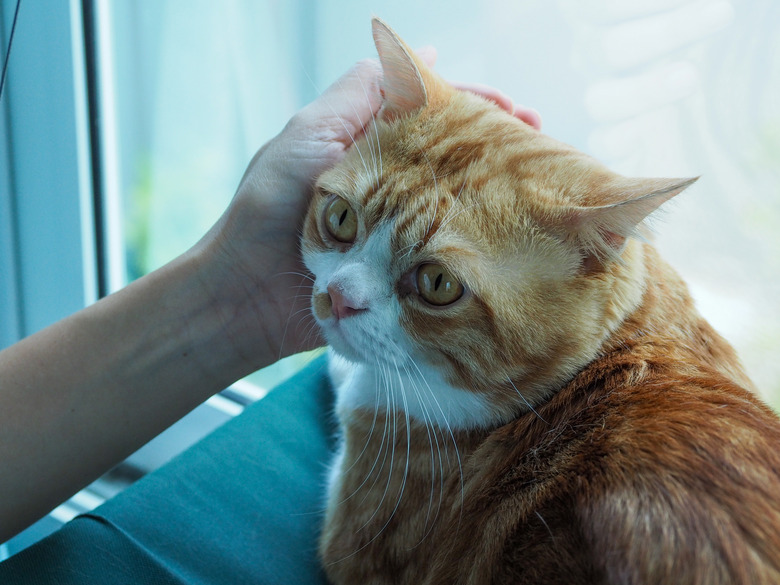Cat Symptoms Shaking Legs
Pet parents know that a cat with trembling legs isn't a common sight, so when you witness limping, shaking, or other jerky movements in a normally healthy kitten or cat, you might become alarmed. While these symptoms are indeed unusual, a cat's trembling legs may be due to a number of different conditions, including arthritis, poisoning, or even the common cold, and they often require a veterinarian's attention. When cats are limping or their back legs are shaking, here's what may be behind it.
Common causes of cat shaking
Common causes of cat shaking
Why do cats' legs shake? When you see your cat's legs shaking, consider factors such as what is in the environment that might cause toxicity in cats, where they have been recently, and if they could be ill. Cats who go outdoors might have been exposed to toxins in the environment, which can affect the nervous system, and your actions, like using certain chemicals, can affect your cat. Age is also a factor since diseases like arthritis often affect older cats.
Arthritis or other joint pain
Cat lovers with an elderly or very old cat should know that chances are good they'll develop osteoarthritis. This condition, which occurs in more than 90 percent of cats 10 years and older, can cause your cat's rear legs to become tender and painful.
If chronic arthritis is diagnosed, your veterinarian can prescribe medications such as nonsteroidal anti-inflammatory medications (NSAIDS), steroids, joint supplements, pain medications, and even new medications including monoclonal antibodies, all to help fight joint pain and inflammation to ease a cat's trembling legs, stiffness, or limb-favoring. A heating pad or warming bed can help some cats with this condition to feel more comfortable.
Infection or foreign body
A broken leg or obvious swelling is a clear reason for a cat's limping or back leg shaking, but a leg infection may be harder to spot and diagnose. For example, your kitten's back legs may keep shaking due to an infection in the nail bed, or the lameness or limping could be caused by a foreign object that's become lodged between the toes. Contact your pet's veterinarian who may advise you to soak your cat's foot in warm water, apply a compress, or bring the cat in for X-rays.
Hypoglycemia (low blood sugar)
Another reason for a cat's trembling legs may be a case of hypoglycemia, which means your cat has low glucose (blood sugar). Keep track of your kitty's kibble so you can determine whether they're eating enough, as skipping food for a longer than usual period of time can lead to this condition. Kittens are more prone to hypoglycemia, as their small body is still getting used to processing glucose.
Sickness or body temperature change
An actual cat cold or a severe change in your pet's body temperature, such as hypothermia or hyperthermia, can also cause trembling over the whole body or leg shaking. A too-high or very low body temperature can occur in a pet who's been outside in the extreme heat or during a severe cold snap. A good rule of thumb is to be aware of your cat's comings and goings during inclement weather.
Exposure to toxins
There are a number of household and garden products that can be hazardous to the health of your cat, even potentially poisoning them, and exposure to these substances can lead to symptoms such as shaking legs, tremors, and seizures. The most common poisoning culprit for cats in this case is coming in contact with pyrethrin insecticides.
These chemicals are typically found in sprays or liquids used in the home or backyard as well as in flea shampoos and topical flea and tick medications. If your cat has had pyrethrin applied to his coat accidentally or they've been exposed to it by rubbing up against a dog who's taking this medication, make an immediate call to the veterinarian.
Why is my cat anxious?
Just as dogs (and humans) do, cats can feel great fear and experience moments of feline anxiety. Two common reasons these feelings develop and cause trembling legs are thunderstorms and fireworks. The loud booms and vibrations that accompany a bad rainstorm or a holiday light show are too much for some kittens to handle.
Ask your veterinarian about medication to alleviate your cat's fear and anxiety or try keeping your kitty in a quiet interior room with white noise playing in the background during these particular moments.
What to do if your cat is shaking
What to do if your cat is shaking
Sometimes, when you know the cause of the shaking and that it is temporary, like if it's due to fireworks or thunder, you can comfort your cat and know the shaking will pass soon. If the shaking continues after the event, however, or if you don't know the cause of the shaking, it is crucial that you contact your veterinarian.
They will ask about any other symptoms, like vomiting or diarrhea, and may want you to bring in your cat for an examination. If you believe your cat may have been exposed to toxins of any kind, call your veterinarian immediately. They can perform tests, like urinalysis and blood tests, to check the entire body for toxins that can cause cat shaking.
How to prevent cat shaking
How to prevent cat shaking
Knowing what can cause cats' legs to shake may enable you to prevent it from happening again. Take some precautions:
- If you must use chemicals indoors, keep your cat in another room with the door closed and windows open enough to let in fresh air.
- Turn on fans and open windows where you are using the chemicals for your protection as well as your cat's health.
- Seek veterinary care quickly if your cat shows symptoms of illness, like a fever, unusual discharge, or loss of appetite, since these can quickly become life-threatening.
- Note what things frighten your cat and take measures to avoid them. Playing soothing music or snuggling might be a comfort during fireworks or storms.
The bottom line
The bottom line
Since shaking legs are not normal cat behavior, cat owners should know that it is important to get to the bottom of why it is happening. Take steps to keep toxins and dangers out of your cat's environment, which also means not letting the cat outside into hazardous conditions. Cats are safer indoors for many reasons, especially since you can't ensure the cat will stay in your yard, even if it is fenced. If you haven't determined the cause of the shaking or if it continues beyond a few minutes, contact your veterinarian, as it could be a symptom of something serious.


